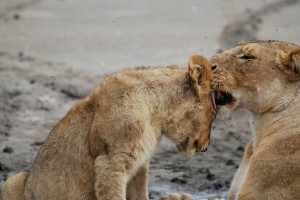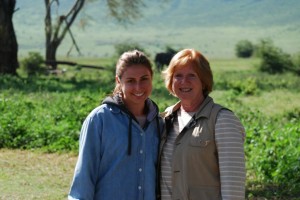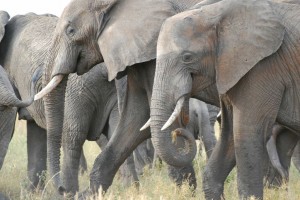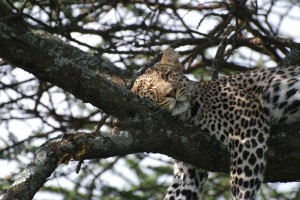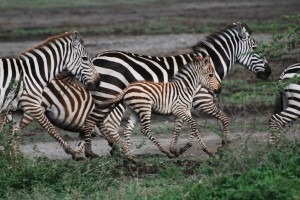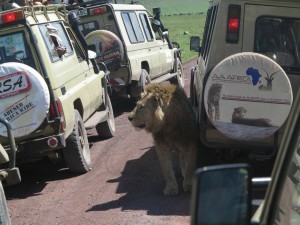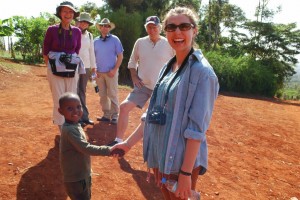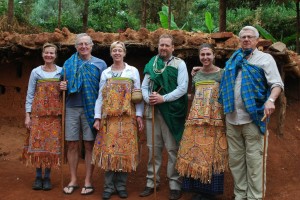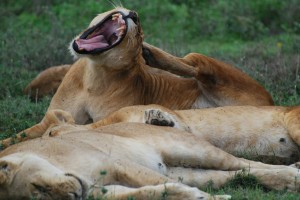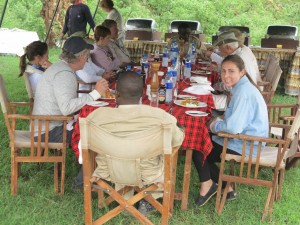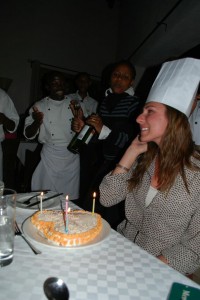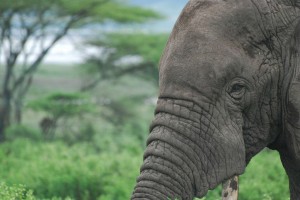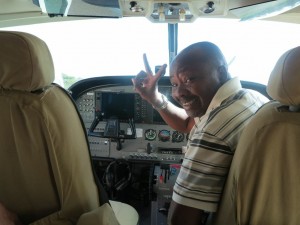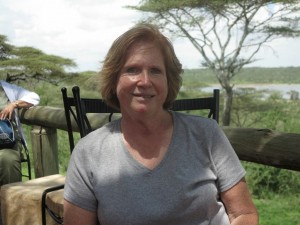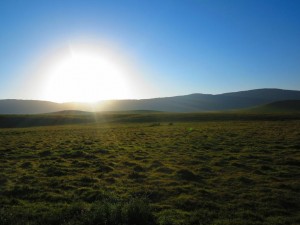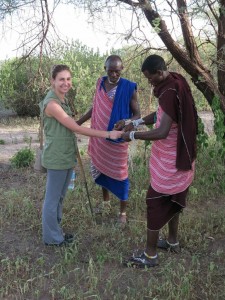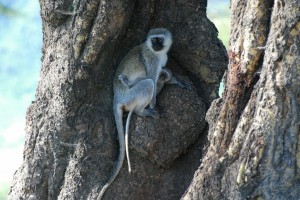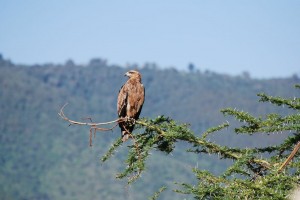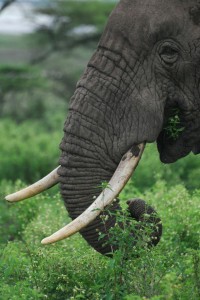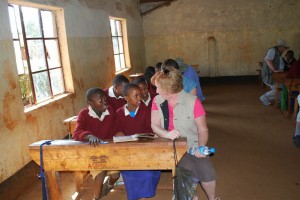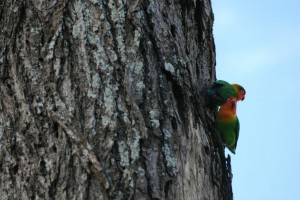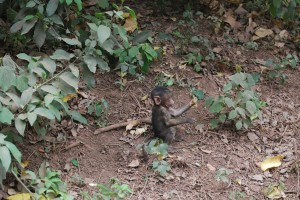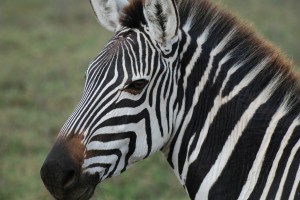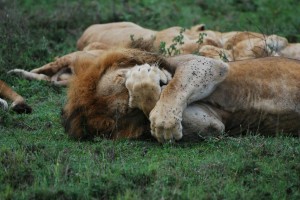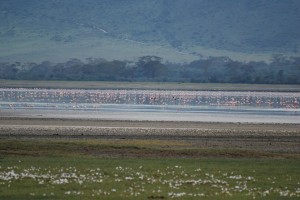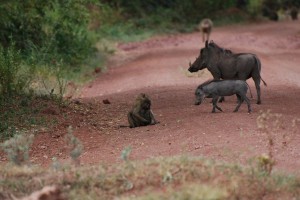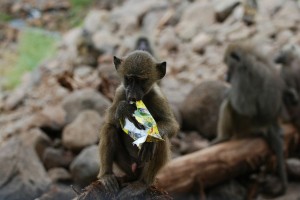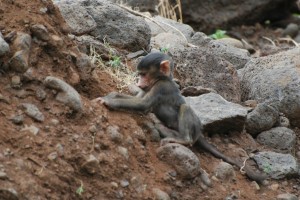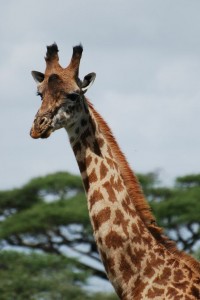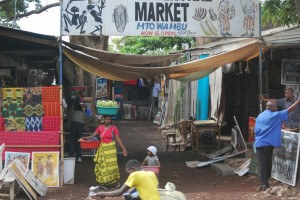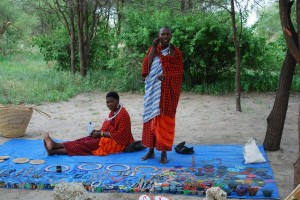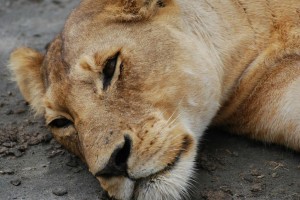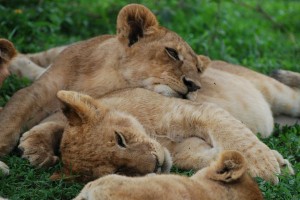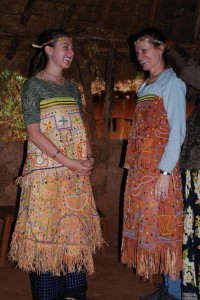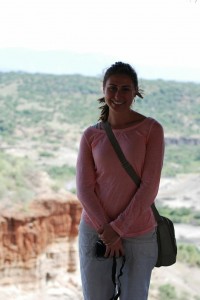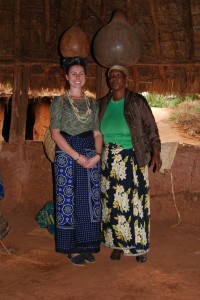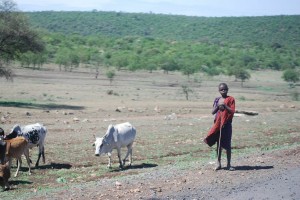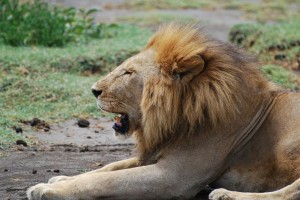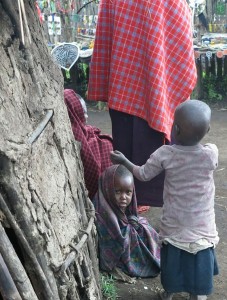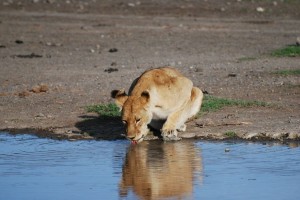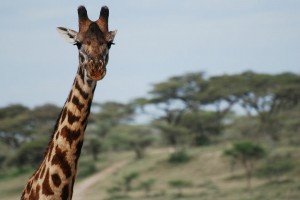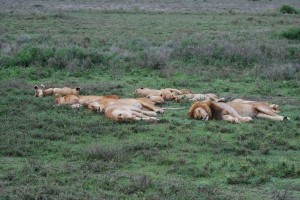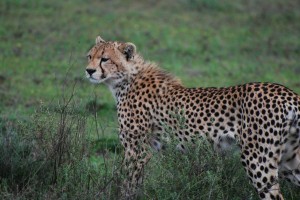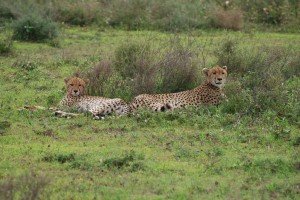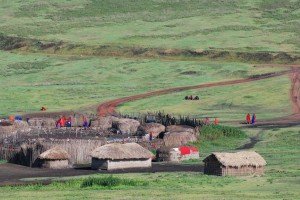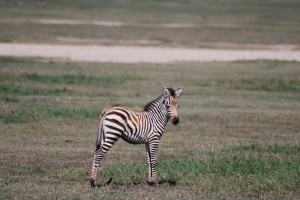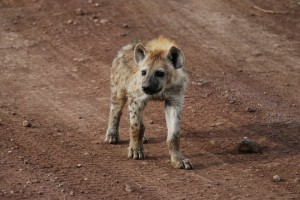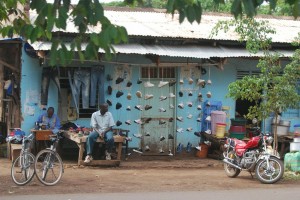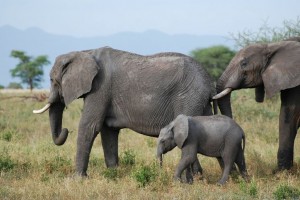Join AQHA Amateur, Lauren Levy, on an Exotic African Safari
EC Blog by: Lauren Levy
Reflections on Our Tanzanian Safari with AA Africa
(To book your own African safari, or learn more, contact Augustine Minja at augustine@aaafrica.net or visit his website at www.aaafrica.net. You will not regret it.)
This past January, I was fortunate enough to spend twelve days with my mother in Tanzania on an East African Safari. While there, I intended to write a blog about my experiences. However, once I was in Tanzania surrounded by a simpler lifestyle, lack of air conditioning, and even electricity at times, it felt wrong to interrupt what I found to be a trip of true personal growth to return to my technology-dependent ways. Instead, after reluctantly allowing myself to readjust to Western civilization, I have taken the time now to reflect back on my time in Africa. Before leaving for the adventure, our tour guides, Ron and Joyce Glazier of Someday is Now Safaris, (www.somedayisnowsafaris.com) told us that once we set foot in Africa, a piece of it would always remain in our hearts. It was not until I had gone through the experience myself that I fully understood what they meant.
Over our twelve days on safari, my mother and I traveled with eleven other people: an extended family of six, Ron and Joyce, our Naturalist, Augustine Minja, and our safari vehicle drivers, and now friends, Hillary and Dickson. We traveled to a number of wild game parks including Tarangire National Park, Lake Manyara National Park, Serengeti National Park, and the Ngorongoro Crater. Each day, we would do a morning or afternoon game drive. To further enhance our experience, Ron, Joyce, and Augustine also organized for us to spend significant time learning about the Tanzanian culture and interacting with the local people. This made for an experience I will truly never forget.
While on safari, we hoped we would see what everyone refers to as “the big five” animals: lions, African elephants, Cape buffalo, leopards, and rhinoceros. We certainly got our fair share of all of those, although the leopards and the rhinos were the trickiest to spot. Still, I had no idea we would experience such a wide variety of other animals. Besides the big five, we saw giraffes, zebras, hippos, warthogs, Dik-Diks, genets, jackals, ostrich, wildebeests, gazelle, impala, waterbuck, cheetahs, turtles, monkeys of all sorts, and even a wild dog, which Ron said nearly never happens in Tanzania.
Besides all of the wild animals, we also saw incredible birds. When we first spoke with Ron and Joyce, they asked our group if anyone was interested in bird watching. No one, myself included, raised their hand, but they told us that every year people change their minds after they see the birds of Tanzania. Once again, they were right. The birds there are so brilliantly colored; I have never seen anything like them. One of my favorites was the African lovebirds which are brilliant hues of red, orange, yellow, and green. Besides being beautiful, these birds have the habit of always remaining with one other bird of their type for a lifetime. To see wild animals naturally establish their own connection with a life-long partner like that was touching.
We were lucky enough to watch animals carry out all sorts of natural behaviors. We watched a parade of elephants slowly travel to a watering hole to drink around noon. There, we saw babies, who were not as experienced as the older elephants in soaking up the water watching their elders for guidance. We saw baby lions playing with each other and rolling around in the mud and what was referred to as the Great Migration, where hundreds of thousands of Cape Buffalo, wildebeests, zebras, and other animals migrate from one piece of land to another. I have never seen a horizon so fully blurred by animals as far as your eyes could see. We even got to get out and take a group photo in the middle of it all. It was so cool!
A few of my other favorite experiences were watching a baby zebra nurse and seeing a baby warthog and a black-faced monkey attempting to play (despite the warthog mother’s clear disdain. She kept running after the baby warthog and nudging him to come back to her.) Also, we saw a few kills along the way, which, although gruesome, was interesting to watch. After all, it’s not every day you get to see the most basic of animal survival tactics take place. But overall, I think my favorite animal interactions were the ones we had with the animals directly.
We were amazed at how close the animals got to us. On multiple occasions, lions would come up and sit in the shade of the safari vehicles to escape the heat of the Tanzanian sunshine. This meant there was nothing but air and about a foot in between us and an untamed, full grown lion. The experience makes my heart sing even now. At one point, one of the lions stopped and looked me right in the eye as he peacefully lay in front of us. He made no threatening move towards us; he was only looking.
Another time, as we were leaving the Ngorongoro Crater, which is a massive volcano that collapsed in on itself and whose base now serves as a beautiful plain, we spotted a baby hyena playing in some tall grass about ten feet away from us. His mother was fast asleep on a dirt road nearby. The baby stopped playing, sat up, and just looked at us in the safari vehicle before deciding to get up and check us out. He was obviously curious as to what we were and why we were watching him. Because so many safaris take place in these parks, most of the animals have become habituated to people and the safari vehicles. Still, this little guy clearly had not learned about humans yet. With his mother asleep, he curiously trotted right over to our vehicle, sniffed the left front tire, and then stopped and looked at my mom, Joyce, and I with our heads out the window looking back at him. After realizing that we were not a threat, he casually walked back over to his mother, sat down next to her, and continued on with his evening nap.
One thing we learned from Augustine, who received the enduring name, “the walking encyclopedia” because of his vast knowledge of Tanzania and the animals, really disturbed me. He told us that a number of animals are being poached in the area despite large efforts by the African government to stop the attacks. He told us how people from other countries come in and poach elephants and black rhinos for their tusks to sell on the black market. He said that black rhinos are nearly extinct in the area. In the Ngorongoro Crater, where they are most populous, only about 35 rhinos remain. Apparently, the people who often kill them do so with the belief that their tusks can be used as an aphrodisiac.
We were lucky enough to see two rhinos in one afternoon during a game drive, but Augustine said that this is very rare. Also, Augustine told us about how much support the wild game parks need to be kept open. Although tourism is a huge driving force for the economy in Tanzania, without continued support for these parks, they might not be open for much longer. He said that we could donate money to help animals and wild game parks like those in Tanzania by donating to reputable wildlife organizations like the World Wildlife Fund (Worldwildlife.org).
Besides the amazing animals, I will never forget the people of Tanzania, or the wonderful people with whom we got to go on safari. I particularly bonded with our safari driver and guide, Dickson. When I first met he and Hillary, I did not know we would get to spend so much time with them. However, after twelve days of breakfasts, lunches, dinners, and adventures together, they quickly became a part of my honorary family. It was so neat to get to talk to local Tanzanians and hang out with them like this. It added to the authenticity of the experience.
Instead of just experiencing the surroundings and tourist areas, as so often happens on vacations, we got a taste of the actual culture there and we got to see how lovely the people are. I still keep in touch with Dickson on a regular basis, which I am really grateful for. The night before we were supposed to head back to America, everyone sat around a camp fire and shared their favorite experiences from the trip. I will never forget how touching it was when Dickson called me his Dada, or “sister,” in Swahili, when it was his turn to speak.
With regard to the other travelers in our group, at first I was hesitant to spend twelve days with these strangers, but it was so enriching to do so. We immediately bonded from the second we met at the Amsterdam airport. One woman, Linda, especially opened her heart up to me. I found that we had a lot of similar interests despite the many decades between our ages. I was by far the youngest on the trip. Everyone was retired, or nearly retired. However, I celebrated my birthday while there; I turned 23. Linda and her husband, Doug, did not have any children, and she asked if she could braid my hair every day for practice. I thought this was very sweet, and I agreed to let her. Even today, Linda and I keep in touch often and send each other little gifts. I went to Africa hoping to see some wild animals, and I can back with a new extended family.
One of my favorite parts of the trip was getting to meet people from the local tribes. Many of them in the Masaai and Iraqw tribes still maintain traditional practices. They allowed us into their community villages where the woman still build huts out of cow dung and mud for their families. These people have no electricity and no computers. They raise and eat their own livestock to survive and make and sell jewelry to tourists to feed their families. Their pride in their traditions and their beliefs was inspiring.
The Masaai showed us some of their traditional dances, and even let us join in. Because their style of dancing is much different than ours, I felt awkward doing it, but I was grateful for the life experience. The Masaai men take turns jumping as high as they can during the song. This is supposed to be a way of impressing the Masaai women and establishing their power. Apparently, whichever male can jump the highest is the most sought after by Masaai women. The Masaai women stand pretty much in one spot while the men jump and chant. The women shrug their shoulders up and down to flip up the traditional beaded necklaces they wear in time to the music.
Also, during our trip, we got to visit a school on my birthday and bring gifts to the children. I will never forget how cute and friendly they were. They all waved to us from the windows of their classrooms and they sang us songs and did traditional Tanzanian dances for us. I have always wanted to volunteer in an international school, so it was so special to get to do this on my birthday.
My mind is filling with emotions as I recall the streets lined with simple, but beautifully colored houses, makeshift shops, and convenience stores that line the Tanzanian city streets. I can only smile when I remember the huge groups of people and friends, all united, sitting out front of their small businesses during the day, selling hand picked vegetables or fruits like bananas and mangos. I remember the women who carried those goods on their heads for miles to get to the city centers just so they could feed their families. Images of men of all ages pushing carts up giant hills with similar goods also float through my mind. These people, so hard working, so dedicated to providing for their family, and so content with what Westerners would call an undeveloped lifestyle. This confused me at first.
I studied International Security and Conflict Resolution in college. I spent months learning about poverty, slums, UN Millennium Goals, and the lack of equal rights among human beings. Don’t get me wrong, I saw everything I learned in motion while in Tanzania. I learned there, just as they had taught us in school, that the majority of the city people have no access to clean water and that most of them travel by foot or cram into minivans just to get to community water holes that have been provided by the government. I saw children whose parents could not afford to buy them new school uniforms or even afford to send them to school in the first place.
For example, our own Augustine had a dream of going to school to be a naturalist when he was younger. However, his family could not afford to send him. It was only by some form of fate, or God, or whatever you believe in, that he was able to. He shared with us that he used to work for years at one of the resorts where we stayed. One day, a family came in, who he served dinner to three nights in a row. On the third day, after hearing his dream, the family offered to sponsor his education, which changed Augustine’s life forever. In 2009, he just started his own safari tour company, AA Africa, which my mother and I were lucky enough to learn about from Ron and Joyce who have been working with Augustine for over 20 years.
The majority of people in Tanzania are very poor, especially in comparison to the American standard. Many of them do not have the same resources we have, or the same technology, or perhaps even a dime of disposable income. What I found fascinating, and what no one taught me in school, was that these people were okay with that. The people of Tanzania are content. Of course, they may desire easier access to clean water, or food for their families in times of drought, or the ability to pay for their schooling, but they do not want us to look down on them for their alternative way of life. In fact, their pride made me realize that perhaps instead of feeling sorry for them, we should be questioning our own morals and lifestyle in a serious way.
This aspect of my trip left me feeling guilty and sad. I have admittedly had a privileged life. Yet, capitalistic Western society still convinces me every day that I need more. The Tanzanians made me realize what I actually need is less. We need less things, we need less money, we need less of everything. I think we need to re-evaluate the claim that the spread of our ideals is the only way to make for a better future. I find some aspects of this argument to be true. However, I also think we could benefit from learning something from the people of some developing countries who are getting by happily with much less than we could ever imagine.
Another remarkable part of our Safari was the food we experienced. Our journey started with processed, indistinguishable airplane food and ended in the same, underwhelming fashion. However, the food we had the privilege of eating while we were actually in Tanzania made up for all of this. We did not know what to expect to be served during a trek through the African bush, but we were pleasantly surprised. Everything we ate in Africa was made fresh for us from home-grown gardens and local livestock. Every meal was prefaced by delicious, exotic soups: Cucumber soup, Squash soup, chicken stock soup, and Split Pea soups. You name it, they made it.
Every meal was also served with a plate of delicious fresh salad picked straight from the resort gardens, and they served us endless supplies of the juiciest, most flavorful fruits I have ever tasted. We ate freshly picked bananas, plantains, passion fruits, mangos, watermelon, and honey dew. We ate handmade breads of all types, and there were even two travelers on our trip who were gluten-free. Every resort handmade them special meals without gluten, which amazed me. Although I’m sure the local fast food restaurants still serve processed and imported foods, we were lucky enough to eat the best of the best while in Tanzania.
Every resort we went to, even tent camps in the middle of the bush, served us freshly squeezed, exotic juices every morning when we woke up. For example, there was passion fruit juice and fresh mango juice. I can taste them now just thinking about it. One day, Ron and Joyce even surprised us with a four course meal including alcoholic beverages in the middle of the African Bush. If you cannot fully grasp this concept, imagine being in the middle of a wildlife park on National Geographic and having three chefs, a tent, glassware, and a fully functioning bathroom dropped from a helicopter over head. As we ate lunch that day, monkeys kept popping out from the bushes surrounding us and curiously watching us eat.
Joyce made a distinct point of telling us that we would not gain any weight while on our trip, as vacationers so often do on long trips to foreign countries. She was right. My mom and I both weighed ourselves when we got home, and we had not gained a single pound even though we had eaten like kings for the last two weeks.
One of my favorite memories with the food we were served was on my birthday. We were staying at an amazing resort overlooking the African mountains. Every night, everyone on our safari would eat together at a family style dinner. That night, as we ate, Linda stood up at the table and announced that she had written a poem for me in honor of my birthday. She read it aloud to the table, and I burst into tears. After we ate, every one of the kitchen staff came out clanging pots and pans and singing traditional Tanzanian songs. They circled all of the tables filled with other travelers and they formed a congo line. The first person was holding a heart shaped birthday cake. After singing Happy Birthday to me in a traditional Swahili way, they plopped a chef’s hat on my head and set the cake down in front of me. They had made me a homemade birthday cake with their own hands, and they had even written my name on the top.
I claim to not be a big crier, but my emotions overwhelmed me at that moment. I knew I was going to spend my 23rd birthday away from half of my family and my best friends, and I was not exactly sure how it was going to be. But it turned out that I was surrounded by so much love and the support of my new African family that my birthday was more special than perhaps any other I have ever had. Since that trip, I have made a conscious effort to try to eat locally, make more of my own meals, and just live a healthier lifestyle overall. I think this is another aspect of the “underdeveloped lifestyle” Americans could benefit from.
One last part of my trip that I have to rave about is the accommodations we were given. Like the food, we did not know what the hotels were going to be like. I admittedly did not do my research before leaving for the trip despite the full itinerary Augustine gave us stating each resort and what we were going to do each day. It turned out that all of the places we stayed were fabulous. Joyce told us that we were booked for some of the middle and higher-end resorts. The views that we encountered, the amazing service, and the kind staff at each of these resorts made us feel like we were living in some African dream. At one place that we stayed, Osopuka Lodge, we each were designated a small hut as our room. Each was beautifully decorated with bright colored sheets, pillows, and African décor. As we looked out of our window overlooking a dried up lake, we saw a parade of elephants, only a few yards away from us. We ran out and took pictures of them which was so cool, because it was our first time getting to see the wild animals up close. The last night of our trip we got to stay in a luxury tented camp, which was amazing. Each room is literally a giant, fancy tent that they pitch on top of a wooden platform in the middle of the African bush. Each tent unzips to reveal four poster beds with elaborate bedding on it, a desk, a dresser, a bath tub, two mirrors and sinks, and an attatched “moon shower.” A moon shower is a private nook attached to your room, but outside of it, so that you can shower underneath the stars.
At night, there is nothing separating you from the animals, and you get the full experience of being in the bush. Although we were not lucky enough to have it happen to us, one of the women on the trip told us of a time on a previous trip that one of her girlfriends had a monkey sneak into their camp site and steal her bras. Although I think I would freak out if there was a monkey digging through my belongings, it would be a good story to tell. Joyce told us that one time she opened her tent to see an elephant staring her right in the eye. This is yet another experience I was hoping for, but it just did not happen for us. Maybe next time.
My Tanzanian Safari was an experience unlike any other that I have had before. It was so special to get to share that time with my mom, and to see her being such an brave adventurer. I can not stress enough how knowledgeable and well-organized Augustine, Ron and Joyce were. They made the experience truly carefree. (Hakuna Matata: No problems.) My mom and I plan on going back with Ron and Joyce on another safari to Botswana in a couple of years. Until then, I guess I will have to depend on my wonderful memories of Tanzania, its animals, and its people to keep me smiling. However, I doubt this will be hard to do.
Scroll below to view more of Lauren’s photos from her amazing trip.










